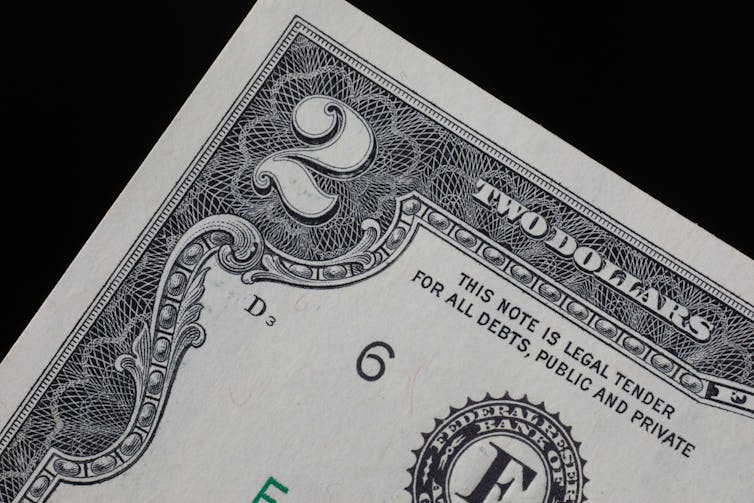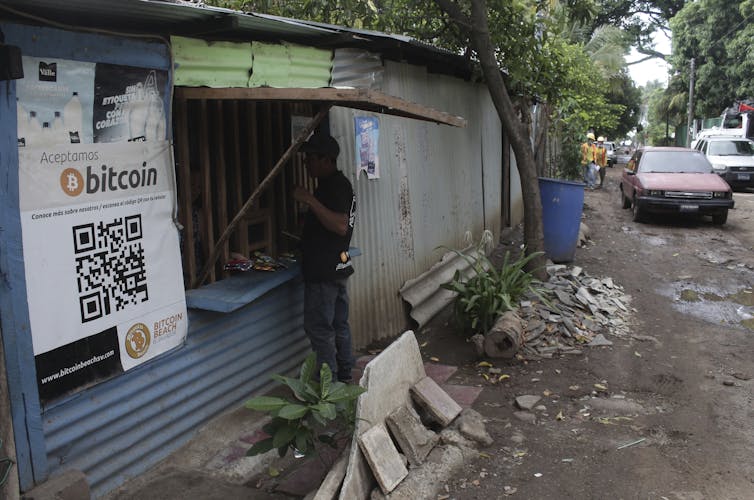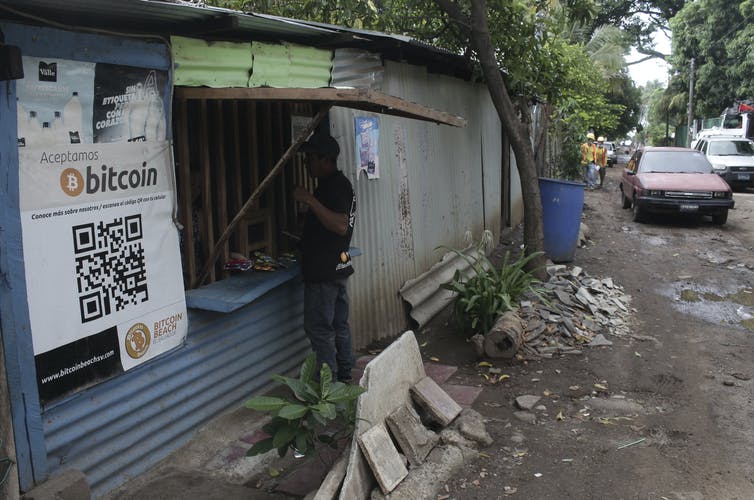On Sept. 7, 2021, El Salvador will become the first country to make bitcoin legal tender.
The government even went a step further in promoting the cryptocurrency’s use by giving US$30 in free bitcoins to citizens who sign up for its national digital wallet, known as “Chivo,” or “cool” in English. Foreigners who invest three bitcoins in the country – currently about $140,000 – will be granted residency.
Panama is considering following El Salvador’s lead.
Does making bitcoin legal tender mean every store and merchant in El Salvador will now have to accept digital payments? If more countries do the same thing, what will this mean for consumers and businesses around the world?
As an economist who studies wealth and money, I believe that briefly explaining what legal tender is will help answer these questions.

What is legal tender?
Legal tender refers to money – typically coins and banknotes – that must be accepted if offered in payment of a debt.
The front of every U.S. banknote states “This note is legal tender for all debts public and private.” This statement has been enshrined in federal law in various forms since the late 1800s.
The greenback is not legal tender in just the U.S. El Salvador, for example, switched from the colon, its previous currency, to the U.S. dollar in 2001. Ecuador, Panama, East Timor and the Federated States of Micronesia also all use the dollar as legal tender.
Do merchants have to accept legal tender?
But despite the definition above, legal tender doesn’t mean all businesses must accept it in payment for a good or service.
That requirement applies only to debts owed to creditors. The ability for a store to refuse cash or other legal tender is made explicit on the websites of both the U.S. Treasury, which is in charge of printing paper money and minting coins, and the Federal Reserve, which is in charge of distributing currency to the nation’s banks.
This is why many companies such as airlines accept payments exclusively by credit card, and many small retailers take only cash.
As the U.S. Treasury points out, there is “no federal statute mandating that a private business, a person or an organization must accept currency or coins as payment for goods or services. Private businesses are free to develop their own policies on whether to accept cash unless there is a state law which says otherwise.”
And this would be no different if the U.S. made bitcoin legal tender. Private businesses would not be required to accept it.
There is clearly some confusion in El Salvador over the issue, however. Its original bitcoin law, passed in June 2021, states that“every economic agent must accept bitcoin as payment when offered to him by whoever acquires a good or service.”
This led to protests and resulted in skeptcism from economists and others. As a result, El Salvador President Nayib Bukele tweeted in August that businesses did not have to accept bitcoin.

Why did El Salvador make bitcoin legal tender?
El Salvador is betting that being the first to open its doors completely to bitcoin will help boost its economy.
President Bukele said he believes this will encourage investors with cryptocurrency to spend more of it in his country. He even has a plan to have El Salvador’s state-run geothermal utility use energy from the country’s volcanoes to mine bitcoin.
Creating, or mining, bitcoin takes a lot of energy, so mining makes sense only in places with cheap electricity.
The $30 given to every citizen who joins the cryptocurrency craze will temporarily stimulate the economy. However, the overall impact will likely be a short-term boost. The impact of similar payments in other countries, like COVID-19 stimulus payments, appear to end after people have spent the money. Moreover, it’s unclear El Salvador’s increasingly indebted government can even afford it.
And the widespread adoption of bitcoin will likely take years. El Salvador has been installing 200 bitcoin ATMs to allow people to convert cryptocurrency into dollars.
Since just 30% of the Central American country’s population even has a bank account, I believe the U.S. dollar will still be used in El Salvador for a long time, even if its president wants to move toward bitcoin.
About the Author
Senior Lecturer, Questrom School of Business, Boston University





























